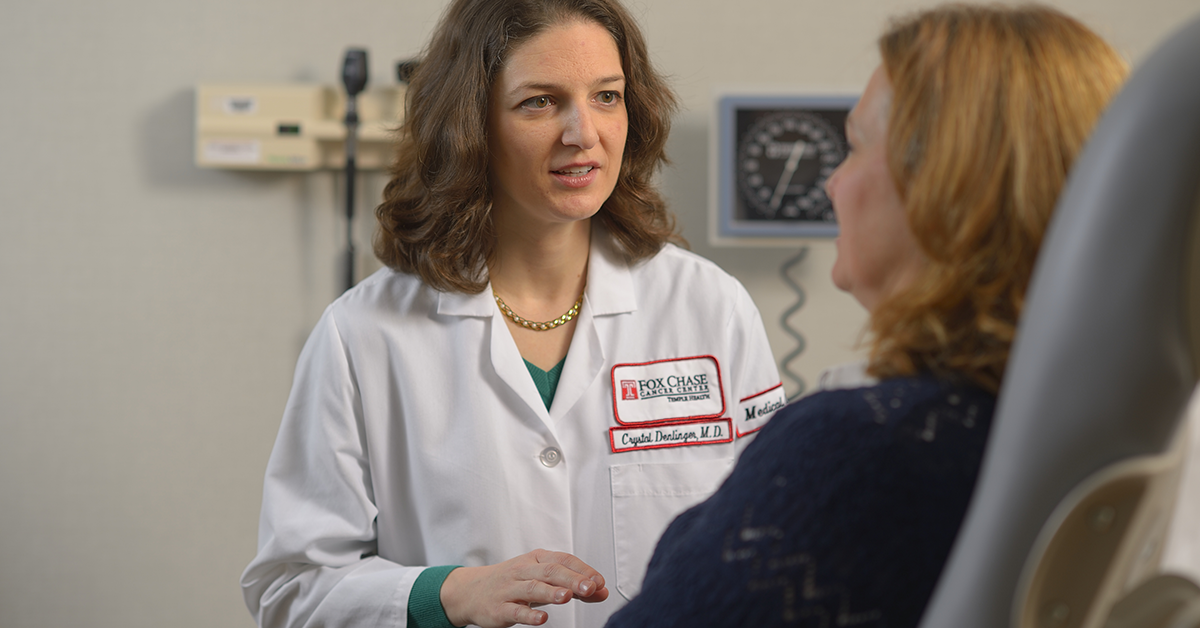
Moving Forward: Your Survivorship Care Plan
-
You’re a cancer survivor who’s about to finish treatment, and it's very likely you’re elated. Yet at the same time you may wonder—and worry—about questions like these: What’s next? Are there things I need to do differently now when it comes to taking care of myself?
That’s where a survivorship care plan comes in. It’s a roadmap for your follow-up medical care, along with a summary of your cancer treatment. It also includes a wellness plan to help reduce your risk of cancer coming back or other health problems.
“This isn’t just another paper to tuck away,” said Crystal Denlinger, MD, FACP, Director of the Survivorship Program at Fox Chase Cancer Center, and Chief of the Division of Gastrointestinal Medical Oncology. “It’s a tool to help you have the healthiest life possible post-treatment.”
So, if you haven’t received a care plan from your treatment team, be sure to ask your oncologist if you could benefit from one, Denlinger advised. You’ll want to share your care plan with your primary care physician and any other doctors involved in your care.
Keeping crucial information in one place
A survivorship care plan may include information like:
- Contact information for your cancer care team
- Your diagnosis date, the type and site of your cancer, and the stage of your cancer
- A treatment summary that includes the type of cancer, beginning and ending dates of treatment, and side effects you may have experienced that affected treatment
- A schedule of follow-up visits, exams, and tests
- Guidance on suggested screening tests to detect a new cancer that might develop.
- Recommendations for healthy behaviors going forward, such as eating a healthy diet, exercising, stopping smoking, and protecting your skin from the sun
“Survivorship plans are gender-specific,” Delinger said. You should expect to see recommendations based on whether you’re a man or a woman, such as how often to be screened for prostate cancer or breast cancer.
Empowering you to be an advocate for your own health
Besides giving you peace of mind about what’s ahead, a care plan can empower you to be an active participant in your cancer care.
“It allows you to be better informed about your care so that nothing falls through the cracks,” Denlinger said. “If you know what you’re supposed to be doing you can advocate for yourself.”
Your plan is also a powerful communications tool.
“By sharing it with your primary care physician, he or she will have critical information about you and your treatment, and will be alerted to possible complications to watch for,” Denlinger said.
And if you change providers—say, you’ve moved—you can easily pass on that information to your new physician.
Also important: Your plan’s recommendations for a healthy lifestyle help protect your overall health too. “Among other things, following these suggestions helps lower your risk for cardiovascular disease and certain types of cancer, which can be a bigger threat for cancer survivors than their original cancer diagnosis as time goes on,” Denlinger said.
Finally, remember that your survivorship plan is a plan for your future.
“It’s your guide for what to do to increase your chances for the next three, five, 20, years of good health,” Denlinger said.
